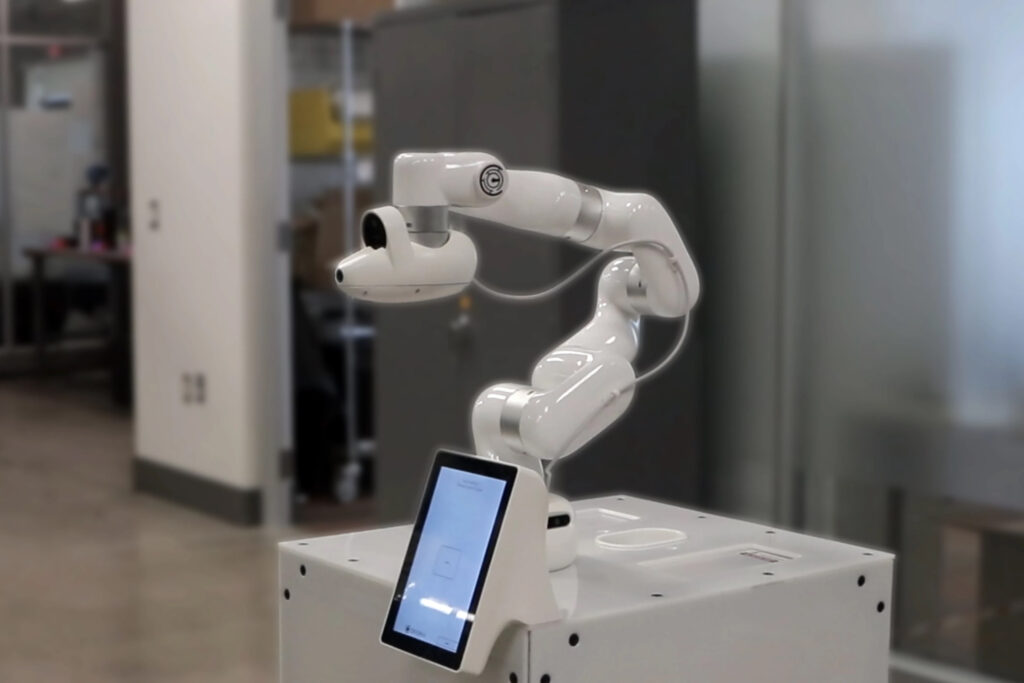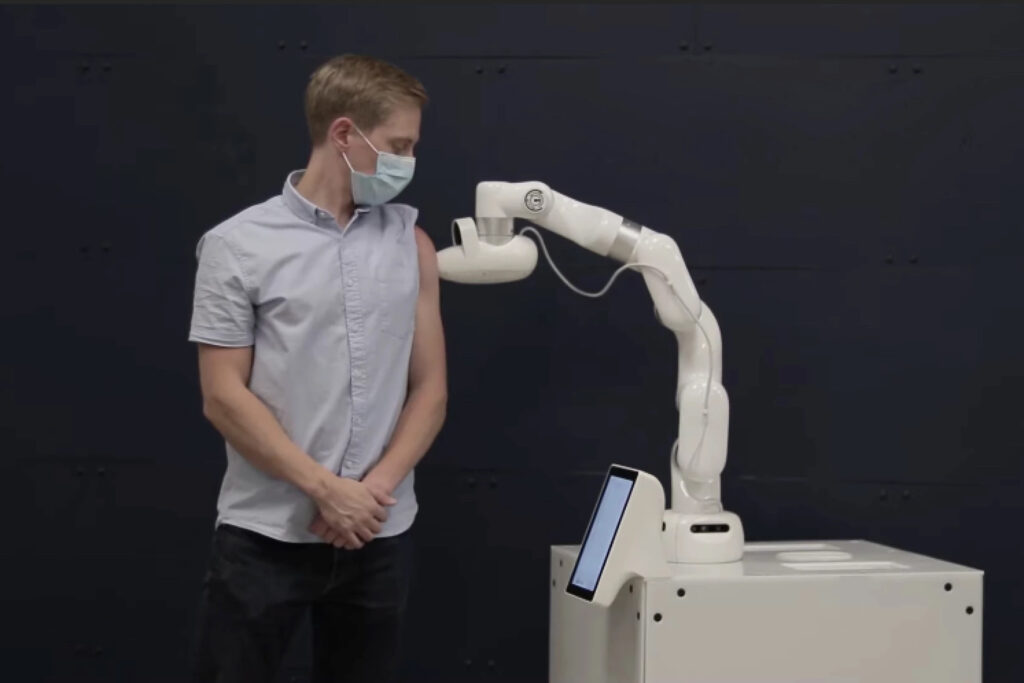Afraid of Needles? Fear No More, Cobi is Here!

Most adults are fearless, or so they seem. However, because of Covid-19, many people realized that several adults are afraid of needles. Thus, they give many reasons why they cannot get vaccinated. Understandably, children are more scared when they see a hypodermic needle, and they need something to calm them down. A few days ago, a news article featured Ollie, a therapy dog, and 14 other dogs at California’s Rady Children’s Hospital. They help children ages five to eleven overcome their fear by being with them while they are getting a Covid-19 shot, one at a time.
A new way to get vaccinated
But this fear of needles from young children and adults may soon be a thing of the past. This is welcome news since healthcare authorities say that the coronavirus will never really go away and become endemic like the cold and flu viruses.
Canada’s University of Waterloo, a public research hospital, introduced the first robot to perform needle-less intramuscular injections. The robot is from the flagship startup company, Cobionix that the university founded. The robot they call Cobionix or Cobi after the company’s name does not need a needle to deliver a vaccine dosage. Instead, Cobi uses a high-pressure fluid jet thinner than a human hair to inject the vaccine into a person’s muscle tissue.
A wide range of robots in healthcare
Cobi joins the range of healthcare robots designed for different purposes. They are a boon to the industry as they provide operational efficiencies, high-quality patient care, and safer work environments. Some robots assist in surgeries, such as the da Vinci and Mako robots.
Several robots are designed as prosthetic robotic arms and legs and therapeutic exoskeletons. Other therapeutic robots equipped with depth cameras and artificial intelligence help in patients’ rehabilitation. Service robots handle routine logistical tasks such as restocking medical supply cabinets, setting up patient rooms, transporting bed linens to laundry facilities, filing purchase orders, and tracking supplies. They also generate reports for the completed tasks.
Some robots perform other tasks such as socializing and monitoring patients in elderly care facilities. Others move around clinics and hospitals to clean and disinfect, move heavy machines and help transport patients.

How Cobi works
Cobi is a robotic arm. According to the co-founder and CEO of Cobionix, Tim Lasswell, Cobi, which is a versatile robotics platform, can be deployed immediately to complete its task autonomously. In addition, Cobi is programmed with needle-free injection technology. Therefore, it does not need a healthcare professional’s involvement to administer intramuscular injections like vaccines.
The robot provides many advantages, according to its creators. It is an efficient way to augment the shortage of healthcare workers. It is also a safer method to deliver vaccines to people even if no human workers are available.
The process is simple – a person wishing to be vaccinated pre-registers online. Then, the patient will go to the clinic or other facility that utilizes Cobi. The robot has a touchscreen interface that will scan the patient’s identification card and verify it. Meanwhile, the robot itself will detect the patient’s presence through its system’s multiple 3D depth sensors.
If the information given by the patient is correct, Cobi will get a vial of vaccine from a storage area built-in into the assembly. Next, the Cobi robotic arm uses a LiDAR sensor to create a 3D digital map of the body. At the same time, an AI-based software analyzes the body’s map and determine the most favorable injection site on the patient’s arm. Next, the patient cleans the injection site with the available disinfectant and presents their arm to Cobi, which will move its nose, which is the needle-free injector, to touch the arm and deliver the vaccine. The patient then gets the bandage provided to cover the injected area. The injection process takes about 30 seconds.
Other uses
According to Cobi’s creators, they can adapt the robot to other industries, including the hospitality and cleantech industries, with some changes in its coding. Since the robot is entirely automated, it can reduce operational costs and healthcare costs. Furthermore, it can improve vaccination drives in remote locations where trained healthcare workers are scarce.
Cobionix says that it will take two more years before Cobi will be ready to hit the market. They still need to do some more tweaking and adjustments to make it completely autonomous.